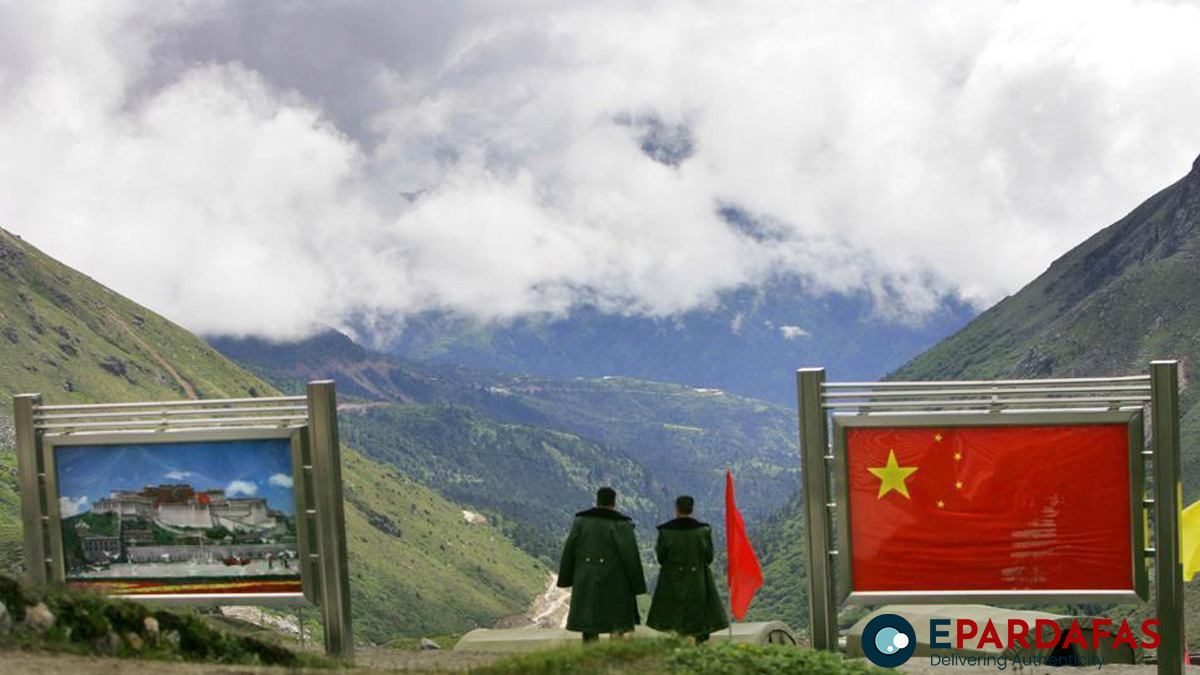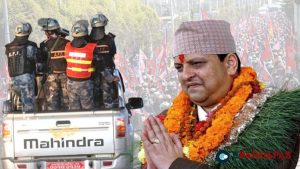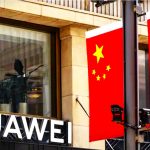
Claims of Dramatic Improvement in Relations Between Thimphu and Beijing Product of Chinese Rumour Mill
The rumour mill of Chinese media is working overtime to make unsubstantiated claims about dramatic improvements in relations between China and Bhutan and to spread the impression that a settlement of the boundary dispute between China and Bhutan is round the corner.
Reports from Thimphu do not indicate anything to corroborate such sweeping claims of Beijing. Claims to the effect that Bhutan is prepared to establish diplomatic relations with China which again do not find any corroboration from the Bhutanese authorities do indicate, however, that Beijing is mounting immense pressure on Thimphu for the establishment of diplomatic relations; as a first step bring the Himalayan kingdom of Bhutan under its sphere of influence.
All these sweeping claims have been made in the state-controlled news agency of China Xinhua and the mouthpiece of the Communist Party of China Global Times while reporting on the 25th Round of Boundary Talks held between Bhutan and China on October 23 and 24, 2023, in Beijing. The text of the joint statement issued by the two countries and appearing in the websites of the Foreign Ministry of Bhutan and the Foreign Ministry of the People’s Republic of China are identical, but do not corroborate all the claims made in the Xinhua and Global Times reports.
The Press release issued by the Ministry of Foreign Affairs on the 25th Round of Boundary Talks between Bhutan and China on October 23 and 24 in Beijing is brief. It says the Bhutanese delegation was led by Foreign Minister of Bhutan Lyonpo Tandi Dorji. “The two sides held in-depth discussions on the boundary negotiations and noted the progress made through a series of Expert Group Meetings since the 24th Round of Boundary Talks in 2016.
The two leaders of the delegations commended the Expert Group for the work done and agreed to build on the positive momentum. The two leaders of the delegations signed the Cooperation Agreement between the Government of the Kingdom of Bhutan and the Government of the People’s Republic of China on the Responsibilities and Functions of the Joint Technical Team on the Delimitation and Demarcation of the Bhutan-China Boundary.
The JTT was established during the 13th Expert Group Meeting to assist the Expert Group in the implementation of the MoU on the Three-Step Roadmap. The two sides agreed to continue working together to simultaneously push forward the implementation of all the steps of the Three Step Roadmap.” That was all. The postscript that the “discussions were held in a warm and friendly atmosphere in keeping with the ties of friendship and cooperation between Bhutan and China.
The two sides also exchanged views on enhancing bilateral relations and matters of mutual interest” was most likely a diplomatic nicety. The release mentions that Tandi Dorji had meetings with Vice President of China Han Zheng and Foreign Minister Wang Yi but makes no further comment on what was discussed. According to the Xinhua report, during the meeting Wang Yi told Tandi Dorji that China was ready to conclude boundary negotiations and establish diplomatic relations with Bhutan as soon as possible.
According to Wang Yi, China and Bhutan were “linked by mountains and rivers and enjoy a profound traditional friendship” and that the conclusion of boundary negotiations and the establishment of diplomatic relations between the two countries “fully serve the long-term and fundamental interest of Bhutan,” emphasizing that the sides should “complete the important process as soon as possible in legal form.” The Xinhua report also claimed that Tandi Dorji said “Bhutan upholds one-China principle,”that “Bhutan is willing to work with China to strive for an early settlement of the boundary question and advance the political process of establishing diplomatic ties.”
According to the report, Dorji said “Bhutan greatly appreciates and supports the China[1]proposed Global Development Initiative, Global Security Initiative and Global Civilization Initiative.”The Global Times report basically replicated the Xinhua report.
A belated report in Bhutanese newspaper Kuensel on October 28 mentioned about a news conference by Tandi Dorji in Beijing where he had said the Bhutan government was optimistic about reaching a conclusion in the boundary negotiations with China at the earliest and establishing diplomatic relations, Prime Minister of Bhutan Lotay Tshering in a recent interview had remained non-committal on the question of establishing diplomatic relations with China, emphasizing on the need to determine “when” and “how.”
Going by the recent Indian experience of China occupying by deceit large parts of disputed territories in the Ladakh sector of the India – China boundary, the reported assertion of Wang Yi to Tandi Dorji that “China respects the sovereignty, independence and territorial integrity of all countries” should sound like a sick joke. It is not clear either how the conclusion of boundary negotiations and the establishment of full diplomatic relations between the two countries will“fully serve the long-term and fundamental interest of Bhutan;”as claimed by Foreign Minister of China Wang Yi. China has made sweeping claims on Bhutanese territories; in the north the valleys of Pasamlung and Jakarlung, and in western Bhutan the valleys of Doklam, Dramana, Charithang and Snichulungpa. Most surprisingly, in 2020 China also extended its claim to the Sakteng Sanctuary in eastern Bhutan. In the previous rounds of boundary negotiations between the two countries, there had been no mention of eastern Bhutan.
Thimphu had duly lodged a protest with Beijing against the fresh claim on Sakteng Sanctuary. In fact, the origin of the border dispute between China and Bhutan is the intransigence of China in recognizing the traditional dividing line between Tibet and Bhutan after its illegal occupation of Tibet in 1950. Tibet and Bhutan have been neighbours since time immemorial with close historical and cultural ties. China has no locus standi in raising a border dispute between Bhutan and Tibet.
The real interest of Beijing in making all these territorial claims in Bhutan is to gain control of strategically important territories in western Bhutan that overlook the vulnerable Siliguri corridor of India. Sakteng Sanctuary in eastern Bhutan is contiguous to the again strategically important Tawang sector. The claim on territories in northern Bhutan is just a red herring. Beijing has always worked against the interest of Thimphu, taking over the control of eight Bhutanese enclaves in Tibet in 1959.
These enclaves were originally territories of the kingdom of Ladakh which exercised control over western Tibet. The rulers of Ladakh had gifted these enclaves to Bhutan as the rulers of both the countries were followers of the Drukpa Kagyu school of Tibetan Buddhism. It is not surprising that boundary negotiations between Bhutan and China have not made much progress ever since it was initiated in 1984. Any careful observer of the sequence of events pertaining to the border talks will not be impressed with the pace of progress. For, while the 25th Round of Boundary Talks between the two countries was held in October 2023, the earlier 24th Round of Boundary Talks, as stated in the joint communiqué, was held in 2016; long seven years ago.
The boundary negotiations between China and Bhutan have thus progressed at snail’s pace, if at all. All that the 25th Round of Boundary Talks achieved was to decide on how the Joint Technical Team, which was set up in a meeting of an Expert Group in August 2023, would function and what its responsibilities would be. It was an exercise in determining the modalities, nothing concrete was achieved in the meeting held in Beijing on October 23 and 24.
The ‘Three Step Roadmap’ which China wants to thrust on Bhutan involves, first, reaching an agreement on the border through negotiations, then conducting site visits on the ground physically to inspect and assess the border areas; and lastly formally to demarcate the boundary.
Analysts say the Joint Technical Team would have a long way to go in reaching an agreement on the border through negotiations before the more difficult process of ground visits can commence. Verbal assurances from Foreign Minister of Bhutan Tandi Dorji about Thimphu accepting the ‘One China Principle,’ again, is of little value. In the merciless world of diplomatic negotiations, such stands of nations have to be written down in the form of joint protocol. So also about Bhutan establishing full diplomatic relations with China; in a one-on-one meeting with his Chinese counterpart, the Foreign Minister of Bhutan could not have done otherwise. The claim that the Foreign Minister of Bhutan has greatly appreciated the high[1]sounding global initiatives that Beijing is planning to initiate — on development, security and civilization — does not sound too convincing either. There is no available report of Bhutan attending the Belt and Road Initiative conference held in Beijing on October 17 and 18; less than a week ahead of the visit of Tandi Dorji to the Chinese capital. It seems that Thimphu does not have much confidence in BRI, the pet project of President of China Xi Jinping.
Beijing will do well to remember that its joy had been short-lived in 2022 to read an interview of Prime Minister of Bhutan Lotay Tshering in the Belgian newspaper La Libre that Bhutan would soon demarcate the boundary with China in the Doklam plateau where the viewpoint of Beijing would be accommodated. Lotay Tshering himself had issued a clarification soon that there was no change in position of Bhutan and that India had an equal stake in the boundary dispute between Bhutan and China in the Doklam plateau. More, soon after the interview of the Prime Minister of Bhutan in the Belgian newspaper, none other than the King of Bhutan himself had visited New Delhi and had with the Prime Minister of India “discussions on the entire gamut of bilateral cooperation and of regional and global issues of mutual interest.”Bhutan, thus, continues to be the closest friend of India.













Comments